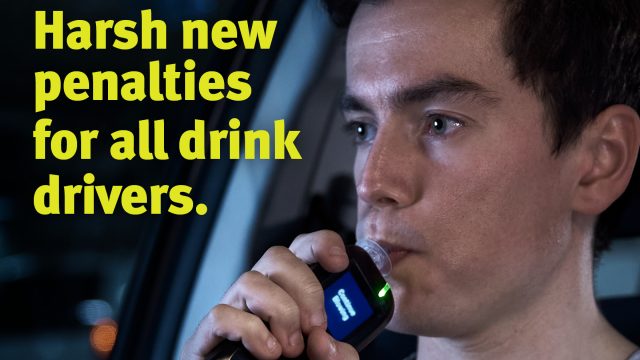Tips to avoid drink driving
If you’re going to drink, make arrangements to get home safely and avoid driving the morning after.
Consider these options:
- Stay at a friend’s place rather than drive
- Leave the car at home and consider alternative transport such as a taxi, ride share, courtesy bus, pre-arranged lift or public transport
- Designate a ‘dry driver’ if going out with others
- If hosting at your house, provide non-alcoholic drink options and plenty of food, offer guests somewhere to stay overnight rather than drive home, or call a taxi or ride share for them. Remember they may still be over the limit the next morning.
- If you’re walking after drinking, walk with a sober friend or group, stay on the footpath, and only cross the road at marked crossings or under a street light where you’re clearly visible to motorists.
Why no alcohol is safer than a little alcohol when it comes to driving
Blood/breath alcohol concentration (BAC) is a measure of the amount of alcohol in the body. Even at 0.05, studies show reactions are slower than at 0.0 BAC.
It’s difficult to accurately monitor how much alcohol we consume due to:
- the different size and shape of glasses
- different alcohol content for each type of drink (wine/beers/spirits)
- different volumes typically poured for each type of drink
- gradual alcohol impairment (the more we drink, the less accurate your guesses become about the amount of alcohol consumed).
It’s also important to remember that BAC may continue to rise after we stop drinking. It’s why we shouldn’t rely on the result from a breath-testing machine in a hotel. Other variables that affect your BAC include weight, gender, metabolism, how often you drink, and how long since you have eaten. Coffee, sleep, vomiting or exercise will not reduce your BAC.
The only thing that reduces your BAC is time.
Drink driving quick quiz
How many standard drinks will put you over the limit? What does BAC stand for? Test your knowledge here.

